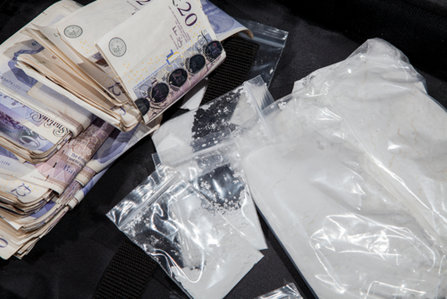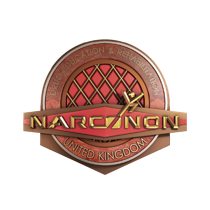Drugs: The Unseen Consequences

In 2016 and 2017, 26,607 crimes in England and Wales were connected with the possession of a controlled substance (excluding cannabis).
These range from drug dealing, possession, murder, theft and drug trafficking. This criminal industry is dependent on users.
If one uses drugs, the dealer has a reason to sell, the thief has a reason to rob others to make money for more drugs, the murderer has a motivation to kill in order to steal the victims’ possessions or stop drug-selling competition. The trafficker has a reason to bring in millions of pounds worth of drugs into the area in order to distribute. It’s no mystery that the drug world is fueled by money, run by slaves and built on bones.

On the 4th of January, 2018, two men under the age of 21 pleaded guilty to trafficking a 19-year-old girl, who was forced to transport drugs. She was under their orders and operated as their slave with the risk of death if she refused to obey.
Similarly, a 14-year-old British teenager was being paid £140 a day to transport crack cocaine and heroin 60 miles out of the city. If she did not sell the supply in her backpack that day she was either beaten or sexually assaulted by her 48-year-old money-motivated boss.
There are gangs in Britain who groom children into carrying drugs throughout the country. Thousands of children—some as young as 12—are estimated to be used by gangs to carry drugs between cities and rural areas in Britain, according to the National Crime Agency (NCA). At least 13,000 people across Britain are estimated by the government to be victims of forced labor, sexual exploitation and domestic servitude in the drug trade.
This side of the drug industry is largely overlooked by the average consumer. When in the club or when taking “party drugs”, end users rarely think about the consequences in terms of the many people forcefully used as drug mules— not to mention the related death count and the families ruined. They don’t care to realise that their money is the primary driver for these organised criminal actions affecting so many others.
“If I knew that this was happening out there when I was using, I would’ve stopped immediately, just knowing that that was my responsibility as well. The more money I spent on drugs, the more money these bastards had to use for drug trafficking and slavery.” N.M. (ex-cocaine user 26 years clean)
Not only do drugs destroy your body, break families apart, and ruin your mental health, but it fuels slavery, trafficking, and abuse. If one were to stop, they would have the pride of saying they helped to slow down the progress of the cocaine industry and begin their road to recovery.
Often, end users can be less concerned with taking responsibility for their own health but may consider wider repercussions for others indirectly affected by the industry. A common argument from an end user may be that one person, stopping their use of drugs, isn’t going to affect others in the bigger picture. However, those previously unaware of these factors may often take it into serious consideration. In either case, we believe it’s worth raising their awareness and highlighting these points. Enough small actions can add up to a lot of good.
Educating an end user to shift their willingness and point of view is a large focus for Narconon UK when helping addicts to realise they need help and in turn, they seek to change.
References:
- https://www.statista.com/statistics/283103/possession-of-drugs-in-england-and-wales-uk-y-on-y/
- https://www.theguardian.com/uk-news/2017/dec/06/mahad-yusuf-fesal-mahamud-guilty-human-trafficking-drug-bust-uk-legal-first-london-swansea
- https://www.nytimes.com/2017/11/18/world/europe/uk-modern-slavery.html
- https://www.reuters.com/article/us-britain-slavery-drugtrafficking-child/uk-targets-gangs-who-use-child-drug-mules-with-tough-anti-slavery-laws-idUSKBN1DS2K3
